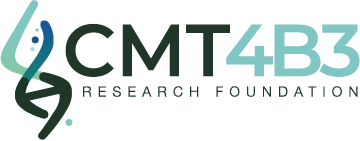
SCIENTIFIC ADVISORY BOARD
Rachel Bailey, PhD
UT Southwestern Medical Center
Assistant Professor Department of Pediatrics and Center for Alzheimer’s and Neurodegenerative Diseases
Dr. Rachel Bailey has a broad background in studying protein aggregation in neurodegenerative disorders, modeling neurological diseases in rodents, and developing gene therapies to treat those disorders. Dr. Bailey’s lab focuses on the development of gene therapies for neurological disorders and facilitates the translation of these treatments for use in humans. Pediatric disorders that she is working on include SLC13A5 epileptic encephalopathy, Multiple Sulfatase Deficiency, Charcot Marie Tooth disease type 4J, Giant Axonal Neuropathy and ECHS1 Deficiency. Dr. Bailey’s gene therapy research efforts to include more complex neurodegenerative disorders, including tauopathies, such as Alzheimer’s disease. Her lab utilizes AAV vector engineering for both gene replacement and gene-silencing approaches, explores alternative methods of virus delivery, performs proof-of-concept studies in cell culture models, and performs IND-enabling studies in animal models for translation of treatments to the clinic.
Alessandra Bolino, PhD
IRCCS Ospedale San Raffaele, Milan, Italy
Head of the Human Inherited Neuropathies Unit
Professor Bolino is the Head of the Inherited Neuropathy Unit in the Division of Neuroscience at the Ospedale San Raffaele in Milan and adjunct Professor of Experimental Biology at the University of Bergamo, Italy. She was a member of the Board of the International Peripheral Nerve Society, PNS (2015-2019), and is presently serving as a member on various committees. She is also a member of the Board of the Italian Peripheral Nerve Association, ASNP. She received a PhD in Medical Genetics and a postdoctoral training in Human Genetics at the University of Oxford, UK. Research in her group focuses on inherited neuropathies with the aim to identify novel disease genes; to elucidate molecular mechanisms regulating myelination and myelin homeostasis in the nerve, and to design strategies for the therapy of these and related disorders.
Maurizio D’Antonio, PhD
IRCCS Ospedale San Raffaele, Milan, Italy
Group Leader, Biology of Myelin
Dr. Maurizio D’Antonio earned his MSc from the University of Milan in 1998 and his PhD in Cell and Molecular Biology from University College London in 2005. In 2014, he established his independent research program as Group Leader of the Biology of Myelin Unit at San Raffaele. Dr. D’Antonio’s lab focuses on Schwann cell myelination and employs transgenic mouse models to investigate the pathomechanisms underlying various forms of Charcot-Marie-Tooth (CMT) disease. His pioneering work identified the activation of the unfolded protein response (UPR) as a key mechanism in many CMT mutations. Currently, his laboratory is dedicated to understanding how misfolded myelin proteins drive disease progression and exploring therapeutic strategies to target the UPR.
Caroline Martinez, MD
Mount Sinai Medical Center
Assistant Clinical Professor, Pediatrics, Behavioral Pediatrics
Medical Director of Neurodevelopmental Pediatrics Dr. Martinez specializes in the evaluation and treatment of children with developmental delays and disabilities. She works closely with families to identify a child’s needs and strengths, and assists in obtaining the optimal interventions to promote learning. Her subspecialty interests include complex developmental disabilities, sleep, and multidisciplinary treatment approaches to learning and language disorders.
Davide Pareyson, MD
Fondazione IRCCS Istituto Neurologico C.Besta, Milan, Italy
Head of the Rare Neurodegenerative and Neurometabolic Diseases Unit and Chief of the Functional Department of Rare Neurological Diseases
His main interest is clinical research on hereditary and acquired peripheral neuropathies and motor neuronopathies, inherited neurological disorders, rare diseases. He performed studies on phenotype-genotype correlation, clinical findings, electrophysiology, neuropathology of hereditary neuropathies (particularly Charcot-Marie-Tooth disease – CMT – and related neuropathies, but also amyloid neuropathy) and other neurogenetic disorders including spinal and bulbar muscle atrophy, hereditary spastic paraplegias, hereditary ataxias, genetic leukodystrophies. He has been working on the development of outcome measures for hereditary neuropathies and other rare diseases and has coordinated and participated in clinical trials and natural history studies in inherited and acquired neuropathies.
Arthur Suckow, PhD
CEO of DTx Pharma
Dr. Arthur Suckow is the former Co-founder and CEO of DTx Pharma, where he led the development of therapies for rare diseases, including Charcot-Marie-Tooth Type 1A (CMT1A). Under his leadership, DTx Pharma raised over $120 million and was acquired by Novartis for $1 billion. He holds a PhD in Pharmacology from the University of California, San Diego, and has received numerous accolades, including a Beckman Fellowship and the BIOCOM Catalyst Award. Dr. Suckow currently advises several biotech companies and investors, leveraging his extensive expertise to drive therapeutic innovation.
John Svaren, PhD
University of Wisconsin
Professor, Comparative Biosciences, The Svaren Lab
John is Professor in the Department of Comparative Biosciences at the University of Wisconsin, and serves as Director of the Intellectual and Developmental Disability Models Core at the UW Waisman Center, where his laboratory is located. Since 2000, he has focused his research program on the genetic basis of peripheral myelination and the disruptions found in peripheral neuropathies such as CMT. John began working with the CMTA to investigate PMP22 regulation and develop assays for drug screening for CMT1A. He is currently a board member of the CMTA and chair of its scientific advisory board. In this capacity, he works with scientists and neurologists in development and implementation of a multi-front strategy to develop new therapies for the various forms of CMT.







